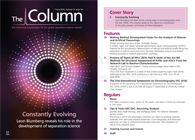Thermo Fisher Partner with University of Birmingham’s New Phenome Centre
Thermo Fisher Scientific has extended a technology collaboration with the University of Birmingham in the UK. Thermo Fisher will supply a range of mass spectrometry instruments to be used at the University’s new Phenome Centre.
Thermo Fisher Scientific (San Jose, California, USA) has extended a technology collaboration with the University of Birmingham in the UK. Thermo Fisher will supply a range of mass spectrometry instruments to be used at the University’s new Phenome Centre.
The £8 million facility provides University of Birmingham scientists with the tools needed to conduct large-scale metabolic phenotyping research, advancing the understanding of biochemical mechanisms, targets, and biomarkers associated with ageing and disease.
“We are pleased to continue our long-standing collaboration with Thermo Fisher in these important areas of metabolome research,” said Professor Mark Viant, Director of Phenome Centre Birmingham.
“Combined with our strong impact in technology and method development, we look forward to the benefits we will translate to the human population through stratified medicine approaches,” continued Viant.
Stratified medicine, a method of predicting which treatments cancers are likely to respond to by studying the cells and genetic make up of large groups of cancer patients, is part of the larger strategy employed at the facility.
Iain Mylchreest, vice president of R&D for chromatography and mass spectrometry at Thermo Fisher, congratulated the university on the opening of the Phenome Centre, adding, “These scientific relationships are mutually beneficial in helping us to advance our analytical tools and technologies that, in turn, enable our customers to make the world healthier, cleaner, and safer.”
This recent collaboration is just one of many between the University of Birmingham and Thermo Fisher across 10 years. Most recently, the organizations have collaborated to accelerate research in high-resolution accurate mass (HRAM) and triple quadrupole liquid chromatography-mass spectrometry (LC–MS) for life sciences applications.- L.B.
For more information about Thermo Scientific, please visit www.thermofisher.com
For further information about the Phenome Centre Birmingham, please visit www.birmingham.ac.uk/research/activity/phenome-centre

Understanding FDA Recommendations for N-Nitrosamine Impurity Levels
April 17th 2025We spoke with Josh Hoerner, general manager of Purisys, which specializes in a small volume custom synthesis and specialized controlled substance manufacturing, to gain his perspective on FDA’s recommendations for acceptable intake limits for N-nitrosamine impurities.
University of Rouen-Normandy Scientists Explore Eco-Friendly Sampling Approach for GC-HRMS
April 17th 2025Root exudates—substances secreted by living plant roots—are challenging to sample, as they are typically extracted using artificial devices and can vary widely in both quantity and composition across plant species.
Determining the Serum Proteomic Profile in Migraine Patients with LC–MS
April 17th 2025Researchers used liquid chromatography–mass spectrometry (LC–MS) in their proteomic analysis to compare the serum proteome of migraine patients with healthy controls and to identify differentially expressed proteins as potential migraine biomarkers.











